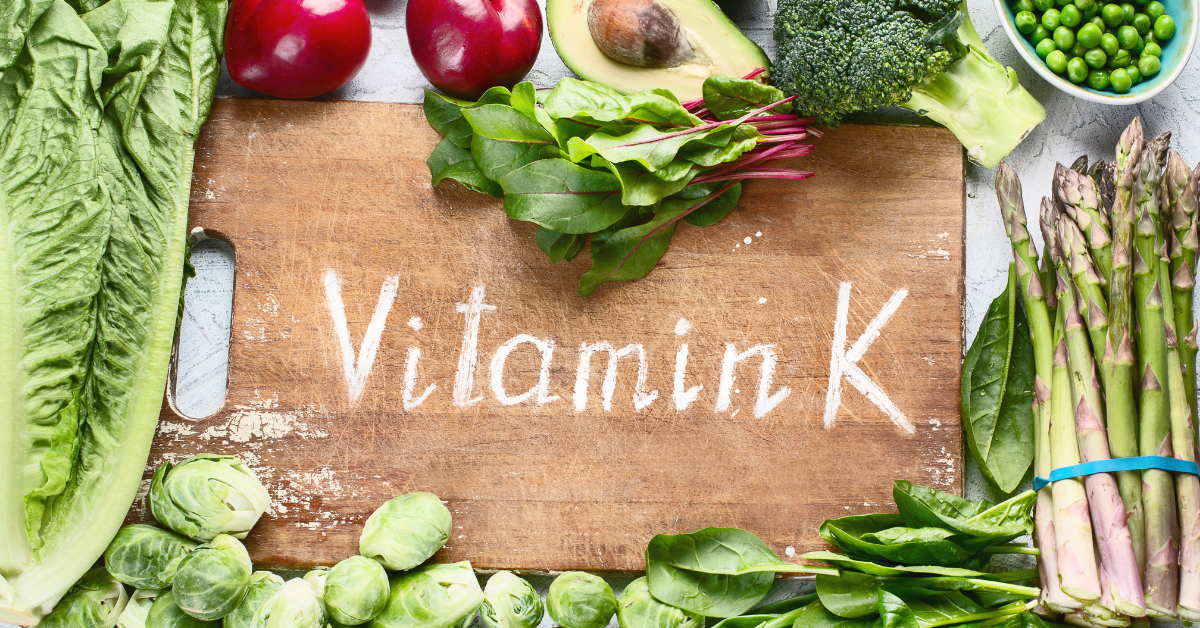Nowadays, many people want to take their health into their own hands in order to become as fit as possible and protect themselves against diseases. A term that is often heard in this context is turmeric. Here you can find out what turmeric is exactly and whether it can actually improve your health and well-being.
At the end of the article there is a 15% voucher for our turmeric waiting for you.
It’s worth reading on!
This is turmeric
Turmeric, saffron root or yellow ginger - you may know turmeric by one of its other names. The ginger plant originally comes from South Asia. The rootstock - the rhizome - is intensely yellow and resembles that of ginger. Peeled, fresh or dried, it is used as a spice or dye and has been used for a very long time in traditional Chinese medicine and Ayurvedic cuisine.
Turmeric is said to have anti-inflammatory and antioxidant properties. One reason why it is so popular as a supplement in the daily diet. This effect is due to the curcumin contained in the root tuber. In addition to essential oils, the rhizome contains up to 3 percent of this secondary plant substance, as shown by a study presented in the magazine Nutrition and Cancer .

Its antioxidant effect
It is known that oxidative stress damages our body and is responsible for many diseases and aging. Free radicals are created, which attack the genetic material in our cells and react with important organic compounds such as fatty acids or proteins.
Curcumin helps protect your body in several ways. It is a powerful antioxidant that can neutralize free radicals due to its chemical structure. It also increases the activity of the body's own antioxidant enzymes and thus prevents damage. This is shown by research from 2000.
In this way, turmeric fights the effects of free radicals in two ways: It blocks them directly and increases your body's defenses.
Its anti-inflammatory effect
Inflammation in the body is not a bad thing per se. It serves as a weapon against pathogens and plays a role in repairing damage. Without it, invaders such as bacteria would have an easy time with our health.
On the other hand, it is dangerous for the body when inflammation becomes chronic. This is the case with diseases such as osteoarthritis and rheumatoid arthritis, Alzheimer's or cancer. Therefore, anything that helps combat chronic inflammation is important.
Curcumin has powerful anti-inflammatory properties. As shown by a study published in the Journal of Biological Chemistry , it blocks NF-kB, a molecule that enters the cell nucleus and switches on the genes responsible for inflammation.
Inflammation and oxidation processes play a major role in the aging process. For this reason, turmeric is known as an anti-aging supplement. However, the extent to which turmeric can actually stop the aging process still needs to be better researched.

Turmeric could be effective against these diseases
As a study in the Journal of Natural Science, Biology and Medicine shows, science is now also interested in the potential medicinal effectiveness of this plant.
Cardiovascular diseases
According to the World Health Organization (WHO), cardiovascular diseases remain the number one cause of death worldwide. Blockages and malfunctions in the arteries and vessels impede blood flow, causing it to come to a standstill.
Although many factors play a role in this disease, studies have shown that curcumin can help reverse some of the steps in the disease's progression. It has a positive effect on the disease's progression in several ways. This is also the conclusion of a study from 2009.
Obesity
Recent research has examined what role turmeric might play in weight loss.
A study entitled “Curcumin and obesity” showed that curcumin could suppress certain inflammatory markers that play a role in obesity. These markers are typically elevated in people who are overweight.
A preliminary study of 44 participants, presented in the journal European Review for Medical and Pharmacological Sciences, showed a significant reduction in body weight, body mass index (BMI), and waist and hip circumference. These people, who were previously unable to lose weight, were given 800 mg of curcumin twice daily along with 8 mg of piperine.
Piperine is a component in black pepper that can increase the absorption of curcumin.
Although current research is promising, more human studies are needed before turmeric can be recommended for weight loss, so for now, exercise and eating right are the only things you can do!
Depression
Curcumin has also shown promising potential in the treatment of depression.
In a controlled study, 60 people suffering from depression were randomly divided into three groups. The first group received the drug Prozac, the second one gram of curcumin, and the third group curcumin and Prozac. After six weeks, the curcumin led to improvements in the condition that were similar to those seen in the Prozac group. But the group that took both substances clearly did the best.
Although the complete antidepressant effect of curcumin is not yet fully understood, it is believed that it could enhance the production of the neurotransmitters serotonin and dopamine.
Type 2 diabetes
As a study description on the Karl and Veronica Carstens Foundation website shows, curcumin can help fight inflammation and keep blood sugar levels constant. For this reason, it could be a useful tool for preventing or treating type 2 diabetes (so-called adult-onset diabetes).
A study of over 200 adults, presented on the American Diabetes Association website, showed that additional intake of curcumin over a period of nine months reduced the risk of developing diabetes.
However, since most of the studies to date have been conducted on animals and not on humans, a final assessment is not yet possible.
Alzheimer
Alzheimer's is a neurodegenerative disease that is responsible for more than 60 percent of dementia cases worldwide. Despite ongoing research, there is still no cure for it. This makes it all the more important to prevent the disease from occurring in the first place.
It has been shown that curcumin can cross the blood-brain barrier and therefore fulfills the first prerequisites for combating Alzheimer's disease.
In addition, a key feature of Alzheimer's disease is the accumulation of protein fragments between neurons in the brain, called amyloid plaques. A study presented in the Journal of Alzheimer's Disease shows that curcumin could help clean these plaques
However, it is not certain that curcumin can actually slow or even reverse the progression of Alzheimer's disease in humans, so much more research is needed.

Are there any side effects?
As we all know, where there is light there is also shadow. So can you expect side effects when taking turmeric or curcumin?
The good news is that turmeric is considered safe for most people. A study of 10 adults showed that taking 490 mg of curcumin daily for a week caused no side effects.
As described in the journal Pharmaceutical Biology , various powders may contain fillers such as cassava starch, barley, wheat or rye flour and may not be suitable for you if you suffer from gluten intolerance.
Some of the powders on offer, which have been diluted with flour, may also contain Acid Orange 36, a food coloring commonly used in India, better known as Metanil Yellow. Metanil Yellow is believed to cause neurological damage and cancer if consumed in high doses, according to research published in the journal Foods in 2016.
Although there are no reliable studies on its effects on humans, metanil yellow is not approved as a food coloring in the EU.
Taking moderate amounts of curcumin is therefore considered safe.
Intake and dosage
One question remains: What is the best way to take curcumin?
The internet offers a huge selection of recipes. From the famous golden milk from Ayurveda to turmeric rice, yellow smoothies and various curries. The Asian spice has many uses.
You can find fresh turmeric roots in Asian supermarkets or in any well-stocked organic store. We also recommend making turmeric tea, which you can enjoy at any time of the day.
Most studies that indicate a positive effect of curcumin were conducted with amounts that are generally over 1 g per day. However, you cannot reach this amount in everyday life simply by seasoning food and drinks.
For a higher dose, you should use high-quality capsules that contain piperine as well as curcumin. Curcumin is poorly absorbed into the bloodstream. However, because it is fat-soluble, it can be a good idea to take it with a fatty meal.
Conclusion: Not a miracle cure, but promising
Turmeric, the ginger root that originates from South Asia, has also become a part of modern cuisine here. This is partly due to its taste, but also due to the many health benefits that it is said to have.
The curcumin contained in turmeric has shown promise in various studies, whether in the fight against depression, Alzheimer's disease, obesity or type 2 diabetes. Nevertheless, a lot of research is still needed to conclusively confirm these approaches.
If you want to make turmeric a regular part of your diet, dietary supplements are a good choice. However, you should make sure that they are of high quality.
As a small thank you for making it to the end of this article, we would like to give you a 15 % voucher for our Turmeric offer.
Simply copy the voucher code “ KURKUMA15+V ” and enter it at checkout.
Click here for the product
[1] https://pubmed.ncbi.nlm.nih.gov/17044766/
[2] https://pubmed.ncbi.nlm.nih.gov/10964379/
[3] https://www.rheumaliga.ch/assets/doc/Bachmann_Curcuma-bei-Arthrose-und-RA.pdf
[4] https://pubmed.ncbi.nlm.nih.gov/12490959/
[5] https://pubmed.ncbi.nlm.nih.gov/19594223/
[6] https://www.ncbi.nlm.nih.gov/pmc/articles/PMC4543531/
[7] https://www.jbc.org/content/270/42/24995.full
[8] https://pubmed.ncbi.nlm.nih.gov/20205886/
[9] https://www.ncbi.nlm.nih.gov/pmc/articles/PMC3633300/
[10] https://www.who.int/en/news-room/fact-sheets/detail/the-top-10-causes-of-death
[11] https://pubmed.ncbi.nlm.nih.gov/19233493/
[12] https://pubmed.ncbi.nlm.nih.gov/23146777/
[13] https://pubmed.ncbi.nlm.nih.gov/10543305/
[14] https://pubmed.ncbi.nlm.nih.gov/23339049/
[15] https://pubmed.ncbi.nlm.nih.gov/27208389/
[16] https://pubmed.ncbi.nlm.nih.gov/26592847/
[17] https://pubmed.ncbi.nlm.nih.gov/29065496/
[18] https://pubmed.ncbi.nlm.nih.gov/25772181/
[19] https://pubmed.ncbi.nlm.nih.gov/31249528/
[20] https://pubmed.ncbi.nlm.nih.gov/23832433/
[21] https://pubmed.ncbi.nlm.nih.gov/23832433/
[22] https://www.hindawi.com/journals/tswj/2009/624894/
[23] https://link.springer.com/article/10.1007/s00213-008-1300-y
[24] https://www.ncbi.nlm.nih.gov/pmc/articles/PMC3857752/
[25] https://pubmed.ncbi.nlm.nih.gov/22773702/
[26] https://pubmed.ncbi.nlm.nih.gov/7390600/
[27] https://pubmed.ncbi.nlm.nih.gov/22407780/
[28] https://www.ncbi.nlm.nih.gov/pmc/articles/PMC5003001/
[29] https://www.ncbi.nlm.nih.gov/pmc/articles/PMC2781139/
[30] https://onlinelibrary.wiley.com/doi/full/10.1111/j.1755-5949.2010.00147.x
[31] https://pubmed.ncbi.nlm.nih.gov/16988474/
[32] https://pubmed.ncbi.nlm.nih.gov/1291482/
[33] https://pubmed.ncbi.nlm.nih.gov/3546166/
[34] https://pubmed.ncbi.nlm.nih.gov/7390600/
[35] https://pubmed.ncbi.nlm.nih.gov/25853978/
[36] https://pubmed.ncbi.nlm.nih.gov/28231130/
[37] https://pubmed.ncbi.nlm.nih.gov/8095244/
[38] https://pubmed.ncbi.nlm.nih.gov/12616621/
[39] https://pubmed.ncbi.nlm.nih.gov/18469248/

















